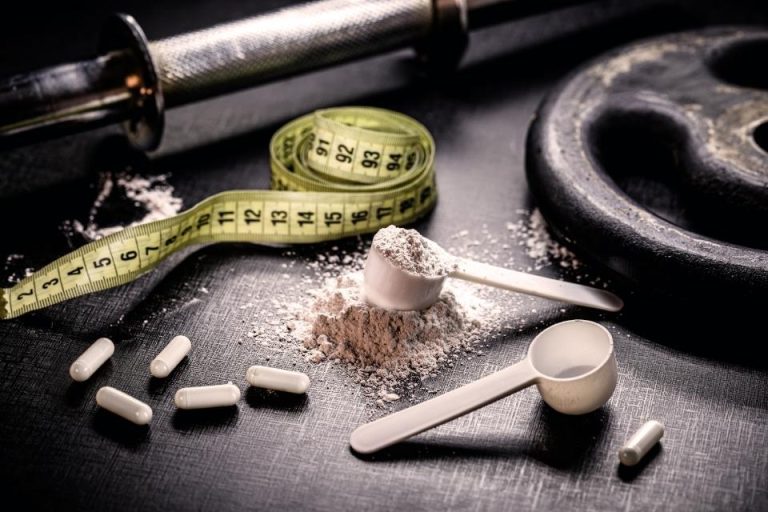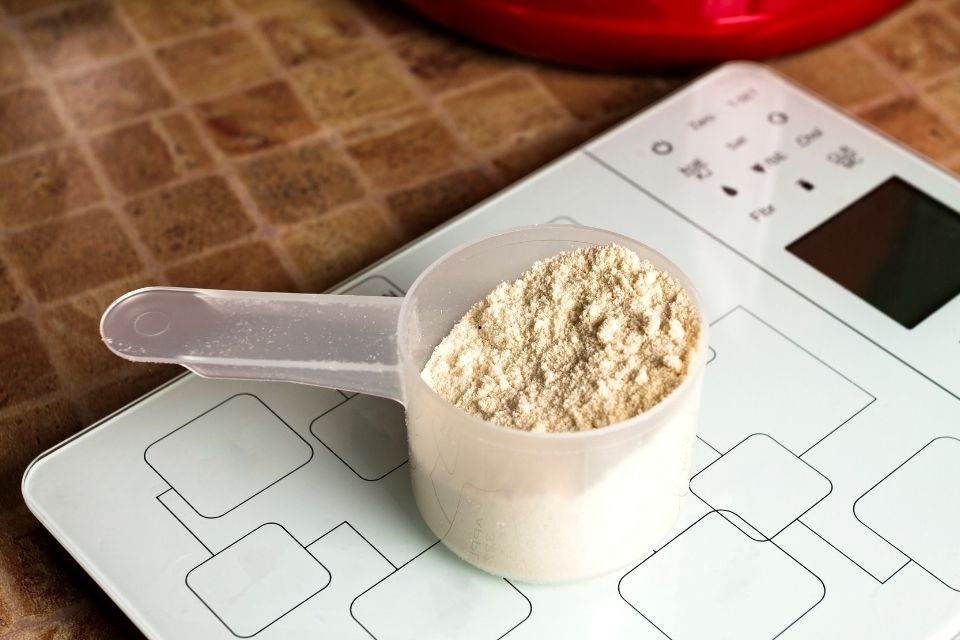Creatine is one of the most studied and widely used supplements in the fitness world.
Known for its role in increasing muscle strength and improving performance, creatine is often present in the routines of athletes, bodybuilders, and even beginners at the gym.
But after all, what is creatine used for? Is it really effective and safe? In this article, you’ll find out what creatine is, how it works in the body, what it’s for, and how to take it strategically to boost your results.
What is creatine?
Creatine is a naturally occurring substance in our body, produced by the liver, kidneys, and pancreas, and stored mainly in muscles. It’s made from amino acids like glycine, arginine, and methionine.
It plays a key role in producing ATP (adenosine triphosphate), the primary energy source for short, high-intensity movements such as weightlifting, sprinting, and jumping.
Although the body produces creatine on its own, supplementation increases muscle stores and enhances physical performance during training.
What is creatine used for?
Creatine is used to improve physical performance, especially in strength and power activities. It helps increase energy during intense efforts, contributes to muscle gain, and supports recovery.
Here are the main benefits of creatine supplementation:
- Increases strength and explosiveness
- Promotes muscle growth
- Improves training volume and performance
- Speeds up recovery between sets and workouts
- Helps with hydration and cell volume
- May support brain health and cognition (according to emerging studies)
It’s one of the few supplements with scientifically proven effectiveness for muscle hypertrophy and athletic performance.
Who can take creatine?
Creatine is suitable for people who:
- Practice strength or resistance training
- Do sports that require speed or power (e.g., football, athletics, CrossFit)
- Want to gain lean mass more efficiently
- Are looking to improve training performance and reduce fatigue
It can be used by both men and women, and even by beginners starting a fitness routine.
Is creatine safe?
Yes, creatine is considered safe when taken at recommended doses. Numerous studies support its use without adverse effects in healthy individuals.
Some people may experience temporary water retention or mild stomach discomfort in the beginning, but these effects are not harmful and often disappear with proper use.
Important: those with kidney issues should consult a healthcare professional before taking creatine.
Types of creatine and which one to choose
The most studied and effective form is creatine monohydrate. It’s affordable, well-absorbed, and backed by scientific research.
Other types (like creatine HCL, buffered creatine, or creatine ethyl ester) are also available but often do not show better results than the monohydrate.
Unless advised otherwise by a specialist, creatine monohydrate remains the best option for most people.
How to take creatine
There are two main strategies for supplementation:
Loading phase: 20g/day for 5 to 7 days, divided into 4 doses, followed by 3 to 5g/day for maintenance
Continuous intake: 3 to 5g/day from the start, with no loading phase
Both methods work, but the loading phase accelerates saturation in the muscles.
Creatine can be taken at any time of the day, but many people prefer post-workout intake. It can be mixed with water or a carbohydrate source to aid absorption.
FAQ
Should I take creatine every day?
Yes. For best results, creatine should be taken daily, even on rest days. Consistency is what helps maintain elevated levels in your muscles and support performance over time.
Can creatine help with fat loss?
Indirectly, yes. While creatine does not burn fat directly, it helps increase muscle mass and training intensity, which can support a higher metabolism and improve body composition over time.
Is creatine suitable for women?
Absolutely. Creatine offers the same benefits for women: more strength, better training performance, and support in lean muscle gain. It does not cause masculinization or weight gain from fat.
Supplement smart, train better
Now that you understand what creatine is used for and how it supports muscle growth, strength, and performance, it’s clear why it’s one of the most trusted supplements in fitness.
Whether you’re just starting out or looking to take your training to the next level, creatine can be a powerful ally.
Want support to build a complete routine, training, nutrition, and supplementation in one place? The BeFit app is here to guide you.
Download the BeFit app and unlock smart workouts, goal-oriented plans, and expert content to boost your results.








